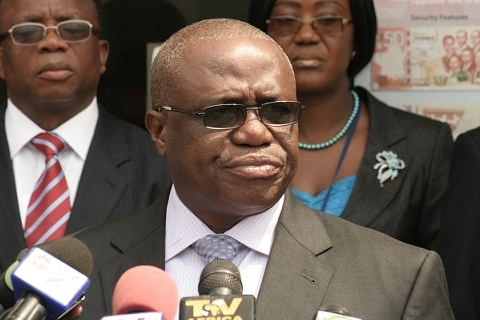
The Bank of Ghana’s (BoG) revocation of Unicredits’ licence was done in accordance with the law, the Supreme Court has affirmed.
“We are satisfied that on the face of the record, there is evidence of a hearing between Unicredit and BoG prior to the revocation of Unicredit’s licence.
“We are also satisfied that the revocation of Unicredit’s licence was done in accordance with the stipulated law appearing on the face of the record,” a five-member panel of the Supreme Court, with the Chief Justice as the Chairperson, ruled.
The apex court’s judgment, which nullifies a Court of Appeal’s decision on the matter, is in agreement with a High Court decision, where HODA Holdings Limited, the majority shareholder of Unicredit Ghana Limited filed a motion for judicial review.
The application was to quash the notice served by the BoG, which declared Unicredit insolvent and hence revoked its licence to operate as a specialised deposit-taking institution.
Other members of the panel were Justices Mariama Owusu, Prof. Henrietta Mensa-Bonsu, Ernest Yao Gaewu and Yaw Darko Asare.
In an application inviting the High Court to exercise its power of judicial review over the BoG’s decision, HODA submitted that neither Unicredit nor its directors and shareholders were notified that it was in a precarious financial position, adding: “Neither were they notified of the possibility of a revocation of its licence”.
It was the HODA’s view that both Section 16 and Section 106 of the Specialised Deposit-Taking Institutions Act 2016, Act 930, which govern the power of BOG to revoke the licence of a Bank or a Specialised Deposit-Taking Institution, made it mandatory for the BoG to give notice and a period of time for remedial action to be taken before revocation of the licence took place.
By so doing, HODA argued that they would have met their obligations prescribed by law.
In its defence, the BOG averred that the reliance of the HODA on Section 16 (3) and Section 106 of Act 930 to urge that BOG was mandatorily required to give notice and a period of time for remedial action to be taken before the revocation of a licence was misplaced since Unicredit’s licence was revoked under Section 123 and not Section 16 and 106 of Act 930.
Again, the BOG argued that it had engaged in supervisory and regulatory interventions regarding the revocation of Unibank’s banking licence and directions given on investments held between Uncredit, Unibank and Unisecurities.
These interventions, the BoG said were to address irregularities in transactions between the affiliated companies.
The BoG averred that it was these irregular transactions that also breached statutory compliance requirements under Act 930 that led to Uncredit being unable to access its investments and meet its capital adequacy requirements.
To prove that it had prior communications, the BOG attached exhibits, dating from September 2017 to July 2019, to corroborate its averments regarding the records of Unicredit and communications between it and Unicredit, prior to the revocation of the licence in August 2019.
The BoG emphasised that the communications reflected opportunities given to Uncredit to repair its capital deficiencies and its inability to do as directed, praying the court to hold that BoG had acted fairly and within the law, and without breaching the audi alteram partem rule.
Source: Graphic.com.gh
END





